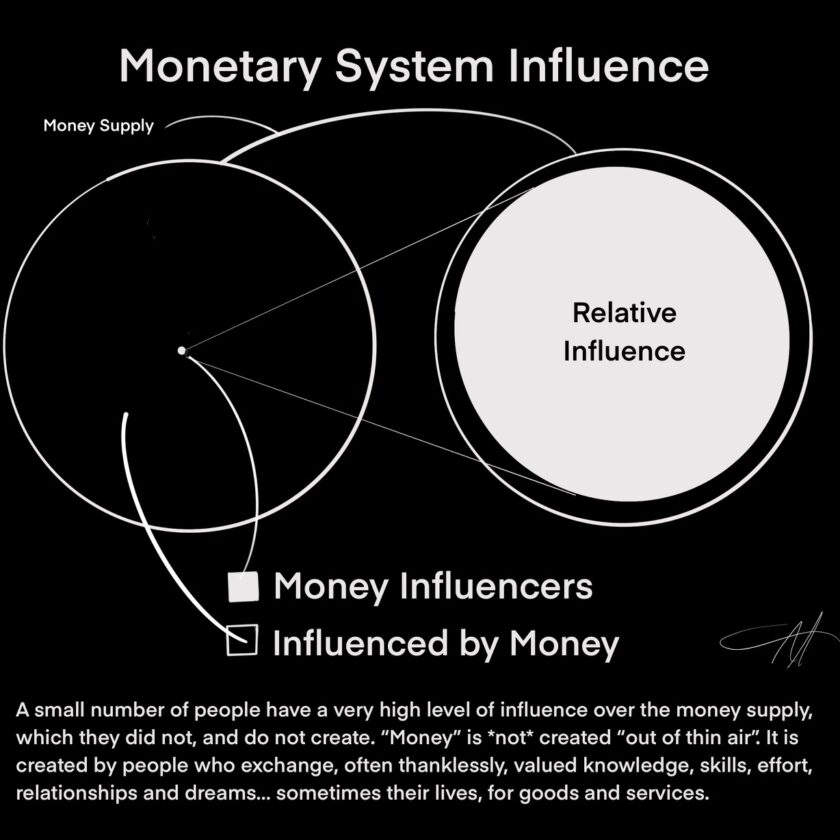[NOTE: After posting my first thoughts on death, here are some more esoteric thoughts along those lines. I originally wrote this essay in 1997. It will be interesting to see where or how my concepts have changed, if at all, in the intervening time. I will note any new additions in brackets [ ]. The subject touches all.]
The ‘Mechanics’ of Non-Physicalness
Whither Thou, the Ego?
Technorati tags: death, spirituality, ego, blavatsky, science, soul
In recent essays we have constructed a premise which suggests that, in addition to our physical (material) body, each human being has a living, discrete, co-existing non-physical (spiritual) one. For the purposes of perception and interaction with others on Earth, the non-physical aspect manifests itself through the physical one to form one’s day-to-day life experiences. The relationship is analogous to donning a body suit to function in a world where only body suits can be perceived. The aspect, which gives the body suit both its form and function, would be invisible.
In one form or another, our spirit would be involved in all matters related to our earthly reality, whether it is good, bad, and undifferentiated. However, for the truly transcendental, magical, and divine moments to occur, there must be a special spiritual presence… of one’s Soul.
Ours is a planet of many people with diverse beliefs about who, and what we are, the nature of spirit, and the world in which it exists. Almost universally, religious and cultural belief systems classify “spirits” as unseen beings that may, in the case of angels, help us or—in the case of ghosts—haunt us. I’m speaking in general terms. (For anyone interested, very detailed cosmologies are available that describe the nature of the spirit world, what ghosts are, and many other unseen lifeforms. The Secret Doctrine (by the mystic and founder of Theosophy, Helena P. Blavatsky (“H.P.B.”) is just one of many sources.)
To clarify our position, a “spirit” is not something that is separate and distinct from the individual. A spirit is the individual: the physical body only appears to be. Shedding the physical body, whether from disease, old age, or mortal injury, simply returns the individual to a state of consciousness and being that is not within the physical space/time continuum.
This is not to suggest that ghosts or other unseen entities do not exist. Explained or not, they live and have meaning within the collective consciousness of humanity. Exactly what ghosts are is subject to much conjecture and speculation. But for now, we want to establish the perception that each physically associated human is already connected to a living, active world that is not physical. Said world would then be the place from whence our physical world is formed.
So in this context, a “spirit” aspect would not mean good or bad. Since a spirit is necessary for physical manifestation, it would be more appropriate to see it as source and also a force for the physical body. It is reasonable that there might be levels or degrees of spiritual unfoldment as there are levels of everything else under the sun. In the same way that fear would be the lowest, least expanded form of love, let us further suggest that what is generally referred to as ego would be the lowest, least aware or “expanded” form of spirit. In spiritual evolution, the Soul might be what an ego would become.
I am being quite circumspect in touching on these issues, because there is no way of truly knowing how all this works from this “side” of consciousness. And, I am certainly not purporting to “know it all” (or even much for that matter). But there is meaning, and hence, some power to all of the terms that we are using here.
Given the importance of seeing ourselves in an “other than physical” context, an examination of the relationships to the various terms used by disparate sciences, is useful. For example, the terms “ego” and “consciousness” are used in psychology but not in religion. Spirit and Soul are used in religion and metaphysics but not in science or psychology. These terms persist because they have some relevance and meaning. It may be unwise to romanticize “spirit” simply because it is spirit. Expanding and synthesizing our terminology allow us to apply intelligent discrimination, so that our attention can be focused on the highest aspect of “who we are”, and who we can be, the Soul.
If a basic trait were to be assigned to the ego, it would be “in-drawing” in nature, in contrast to “out-giving”. The egoistic nature serves us well as children. While the physical body requires and generally receives the most care, our consciousness must likewise take in copious amounts of information of both the useful and useless variety, and imprinting experiences. The ego spirit “pulls” energy toward it instead of directing it toward others. Being the lowest manifestation of spiritual beingness, the egoistic influence would be responsible for selfish behavior. Fear is not a “tool” of the ego: it is an existential state thereof. While one is “in ego” they are unable to receive the signals of the fully realized Soul, which is beyond fear and unknowing, in a state of fully realized love.
Therefore, it is apparent that the human physical journey involves:
- one’s birth into this world,
- the immediate and constant in-drawing of information
- personality imprinting: behavioral responses to stimuli
- the ex post facto gestation of one’s consciousness, beginning after the fetus has emerged from the womb, and lasting until puberty, when the ego-enabled spirit becomes a functioning, self-aware individual
- optional: realization of the unproductive effects of one’s behavior and the desire to transform the pattern
- optional: adoption of an inspired vision, and plan to make it real
- optional: the process of wonderful dream making (involves facing and overcoming fears, opposition, non-believers, and one’s own unproductive proclivities)
- optional: giving one’s best effort toward the achievement of their highest dreams
- goals accomplished, or, time, opportunities, and energy runs out
- exiting this world through physical dissociation (death)
It is not our intent to suggest a schism dynamic within the individual, where the ego is the little devil that whispers in one ear and the Soul is the angel that whispers into the other. It is time we took a less fanciful view, since all choices can have positive or negative potential effects.
There are practical benefits to gaining an appreciation for these ideas. The most important benefit is that we begin to see an evolutionary path of consciousness paralleling that of our physical body, which we can aspire to understand better, and enhance. Transitioning from an egoistic awareness to a Soul connection involves an expansion of consciousness. It requires choices that put fear aside. It requires that we care for someone or something other than our self. This does not mean not caring for self, but including others in one’s care… considering and respecting their point of view as well as our own.
In the long run, the ego itself is not really important. It is simply a name we’ve given to a level of non-physical, meaning spiritual beingness that exists with, and in manifestation of the physical. The choices that we make are important in our interactions with each other. If there is love and intelligence in our choices and actions, then they won’t be taken in fear. We won’t be slaves to anger, resentment and ignorance. We will be able to listen to other points of view with an open, but discriminating mind. We will recognize an ego’s “voice” when we hear one, and respond appropriately. And thusly, we will make our journey to freedom.
Copyright © 1997-2007 Adam Abraham All Rights Reserved
[PS. I changed nothing. The terms Soul and Spirit could be interchanged, but I felt no inclination to do to.]




